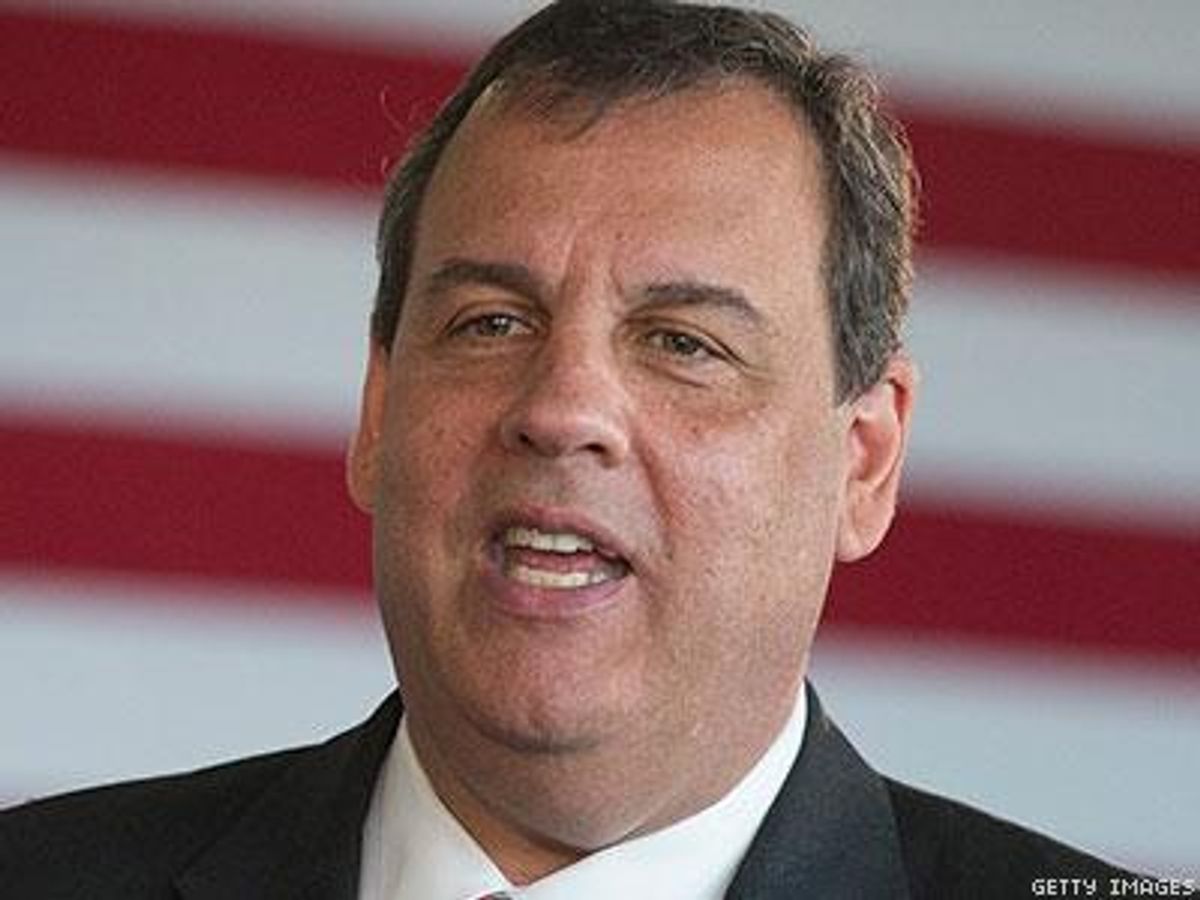New Jersey Gov. Chris Christie formally announced his presidential campaign today, making him the latest entrant to an already crowded field of candidates seeking the Republican nomination in 2016.
He's also the only declared Republican candidate who has vetoed a marriage equality bill. In fact, Christie shares that distinction with just two other state leaders: former Vermont Gov. Jim Douglas, who vetoed equal marriage legislation in 2009, and former California Gov. Arnold Schwarzenegger, who vetoed marriage equality in 2005 and 2007. All three governors who have vetoed such efforts are Republicans.
Christie made his announcement in the packed gym of Livingston High School, where the governor launched his political career as a teenager by winning election to student government, according to the Washington Blade.
"America is tired of hand-wringing and indecisiveness and weakness in the Oval Office," said Christie. "We need to have strength and decision-making and authority back in the Oval Office, and that is why today I am proud to announce my candidacy for the Republican nomination for president of the United States of America."
But across his two terms as governor of New Jersey, Christie has often used his own "decision-making and authority" to veto legislation that could support LGBT residents of the Garden State. In 2012, Christie vetoed bipartisan marriage equality legislation, resulting in a year-and-a-half delay before New Jersey's same-sex couples could legally marry. And even then, marriage equality only arrived in New Jersey after Christie's administration grudgingly stopped defending the state's constitutional ban on same-sex marriage, after the state supreme court refused to put a stay on a lower court's pro-equality ruling.
In the run-up to his reelection in 2013, Christie said he would oppose marriage equality even if his own child came out as LGBT.
In fact, just hours before he announced his campaign, Gov. Christie vetoed a bill Monday night that would have protected the rights of prospective parents using a surrogate to expand their families. Called the Gestational Carrier Agreement Act, the legislation had bipartisan support and "would have modernized New Jersey law by giving legal parental rights of a child carried by a gestational surrogate to the intended parent at birth," according to a Human Rights Campaign statement on the bill.
"This veto is a terrible outcome for families across New Jersey who need gestational surrogacy agreements to strengthen their families," added Andrea Bowen, executive director of Garden State Equality, in HRC's statement. "We deplore what Governor Christie has done."
"Gestational surrogacy is especially important to members of the LGBT community because it enables couples to establish parental rights and create a family while allowing such couples to have a genetic relation to their children," explained Garden State Equality in a statement today on Christie's veto. "Gestational surrogacy is distinguished from traditional surrogacy, in which the carrier makes use of her own egg and therefore has a genetic relation to the child."
Last year Christie vetoed legislation that would have made it easier for transgender residents to update their legal documents, claiming that such modernization efforts recently adopted by neighboring states would create "opportunities for fraud, deception, and abuse."
However, Christie did sign a bill in August 2013 that made New Jersey the second U.S. state to outlaw the use of so-called conversion therapy on minors; such therapy attempts to change a young person's sexual orientation or gender identity. Although Christie expressed concern that the law was "government limiting parental choice," he ultimately sided with the overwhelming scientific evidence condemning the practice as harmful.
"I believe that exposing children to these health risks without clear evidence of benefits that outweigh these serious risks is not appropriate," Christie said while signing the bill. The law has subsequently been upheld by several federal courts, while similar legislation has been adopted in California, Washington, D.C., and Oregon.













































































